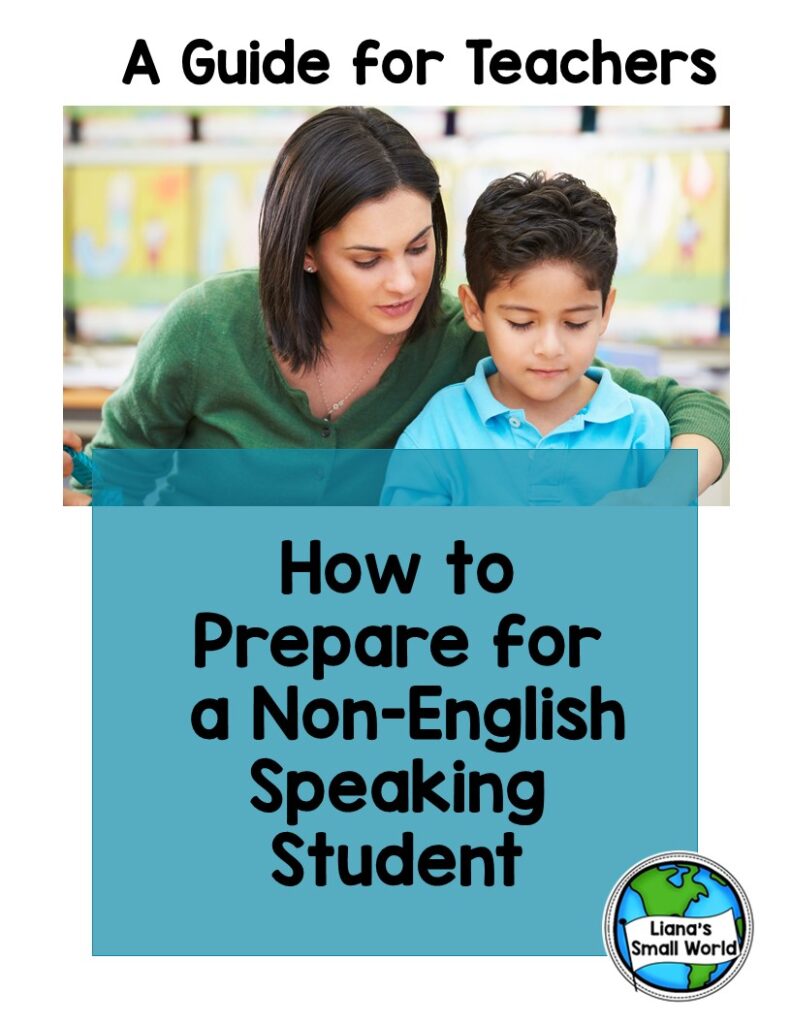Dear teacher, when you welcome an ELL newcomer into your classroom, it is not easy. On top of that you are already feeling at capacity. You have a wonderful and warm heart, but your focus might be on “How can I deal with this new student when I have no background to relate to him?”
Let me help give you a slight window into what they are feeling. My own children experienced this in moving to a new country, so I might be able to give some perspective.
1. I am grieving.
I have left my grandparents, aunts and uncles, my favorite cousins, and my best friends behind. I have left the house that I may have grown up in all my life. I left the way of life that had its problems but was all I knew, and despite its possible negatives, it was comfortable. I even left my native tongue and, for the moment, every interaction I have now requires a huge effort and makes me feel a little dumb.
I might seem withdrawn because of this. Don’t assume that I am shy or unwilling to participate – be patient with me. This grieving, in time, will lessen, as I slowly begin to assimilate into my new culture and make new connections.
2. I am emotionally drained and overwhelmed.
My senses are constantly heightened because of culture shock. I am hearing words that I do not know, but I have figured out that a few words sound familiar. I also notice that if I watch the body language around me carefully, I can grasp some meaning of what you are saying.
However, I am not always right in my deductions. It is embarrassing when I am wrong. Living this way requires SO MUCH EFFORT, that I am often physically and emotionally exhausted from trying. Although I really want to connect, I might give up at times because of this.
3. I have NO background to understand the routines, rules, and expectations that are commonly understood here.
The normal routine here is NOT normal for me, and I don’t understand many parts of it. I spend much of my day watching to observe what is happening and trying to figure out WHY. Some things that are important and valued here were not in my country, so if I do something wrong, don’t assume it’s because I am rebellious.
For example, at the end of the day when the bell rang, we all just went out of the building to head home. I didn’t know WHY the students made a line and walked together in the hall. This wasn’t necessary at my school. I need to be shown your procedures, and when I am able to understand those procedures, I need to know the “why” behind them.

4. I have MANY gifts and talents that are not showing now, but that you and your students could benefit from learning about.
I am so lonely for connection and dying to be known for something other than “being the kid that doesn’t speak English”. I could be an incredible soccer player, or maybe a talented vocalist!
I certainly know firsthand things from another part of the world that you and your students know nothing about. When you are interested in me and my country, It helps me feel connected and part of the class family, even though I have many differences.
So how should this impact my teaching?
This information should help you avoid assumptions that inhibit your new student’s assimilation into your class family. Expect them to be withdrawn. Many ELL’s have a “silent period” where they are just observing and don’t really try to speak much during this time. This is okay and normal – keep making efforts toward communication, but with low expectations.
That being said, not ALL ELL newcomers react this way. Some are very outgoing, and fearless about making mistakes, so accept this as well.
Stay tuned to the blog for a post containing lots of personal examples of how my family experienced this as newcomers to the country of Hungary!
For more help with welcoming newcomers to your classroom, I have a free guide for you.
“How to Prepare for a Non-English Speaking Student”

Want MORE ways to help your ELL Newcomers?
3 Ways to Prepare for ELL Newcomers and Non-English Speaking Students
Get Your ELL Newcomer Speaking – The One VITAL Element – CONNECTION
Follow Me to Learn More







0 Comments